If you are working with Python and inheritance, it is important to understand access to the parent classes. The keyword super allows you to efficiently access the methods and properties of the parent classes without unnecessarily duplicating code. In this guide, I will explain the significance of super and show you through concrete examples how to use it correctly and meaningfully.
Main findings
- super allows access to the methods of the base class.
- You avoid code duplication by using super.
- It is particularly useful for adding additional functionalities in derived classes.
Step-by-step guide
Understanding the problem
In object-oriented programming, you may have an initializer (i.e., the constructor) in a derived class that uses the same logic as that of your base class. It is suboptimal to copy the initializer from the base class and repeat it in the derived class. To avoid code duplication, it makes sense to access the parent class using the keyword super.
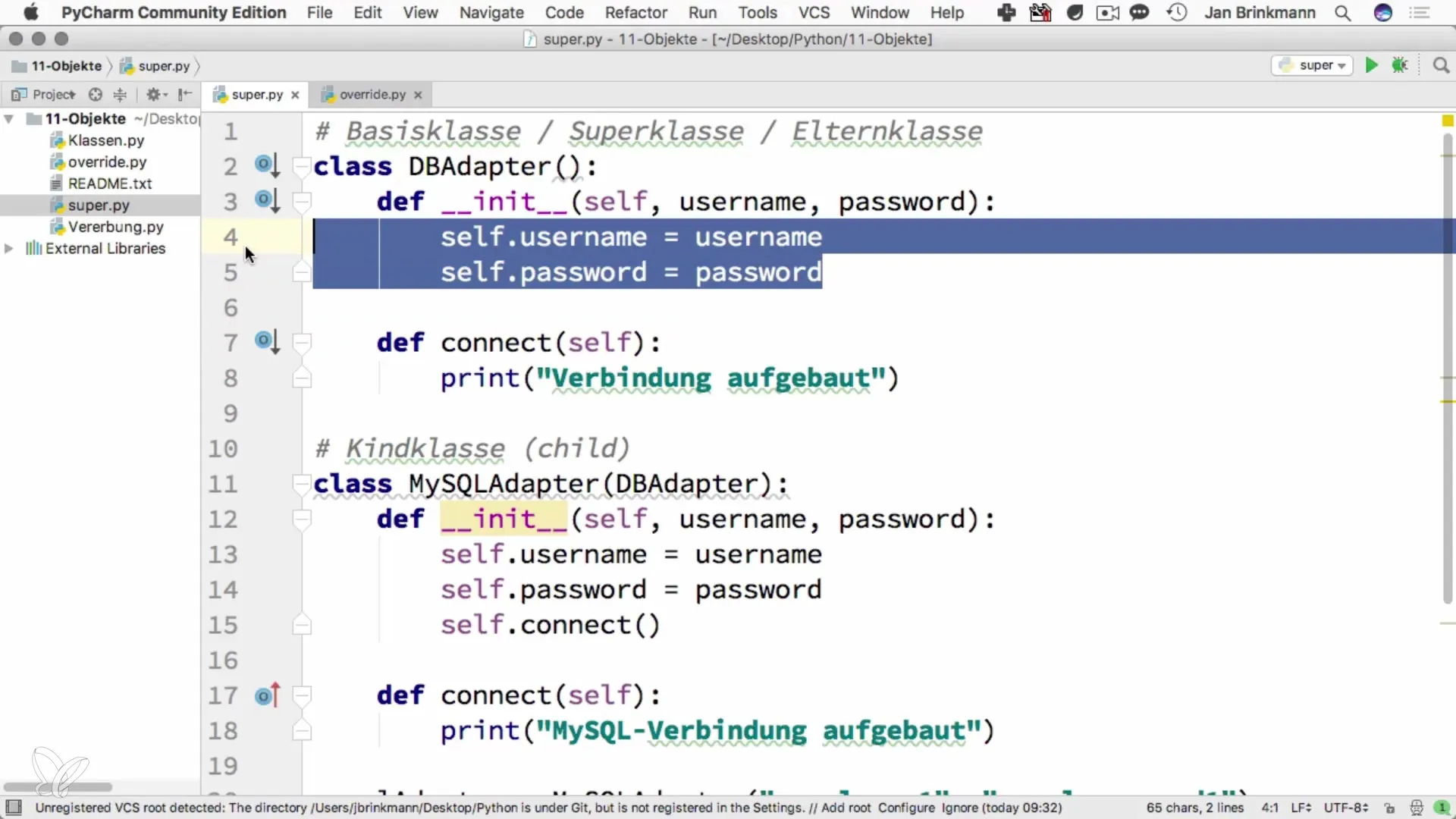
Using super
To use super effectively, you call the initializer of the base class from the derived class. You can do this by using super().__init__() in your code. This allows you to pass the original initialization parameters, such as username and password, without having to declare them again.
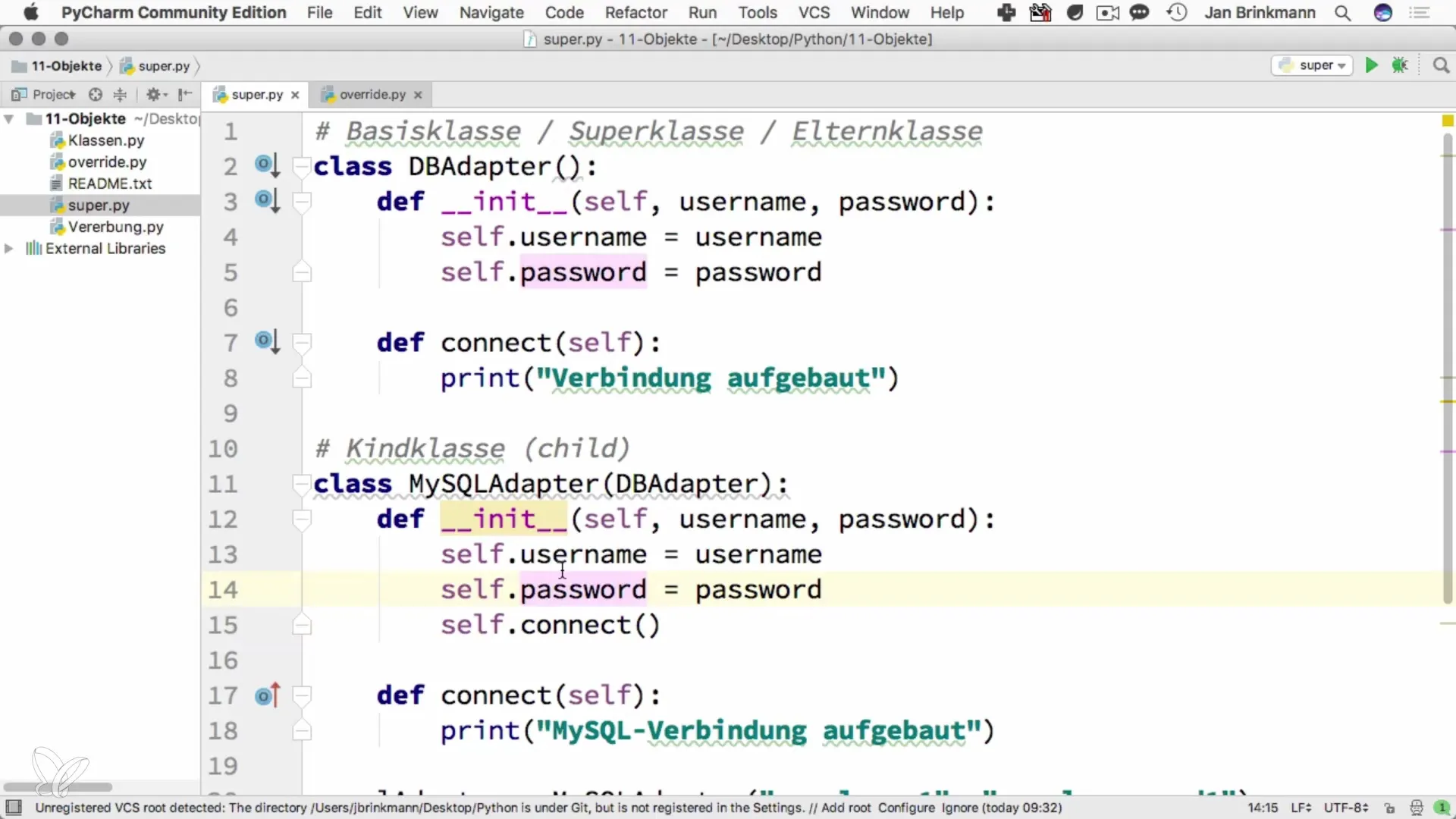
Adding functionalities
With super, you can not only call the initializer but also implement additional logic. Imagine you want to specify extra parameters like the hostname for a MySQL connection. You can easily do this by additionally defining the hostname in your derived class and setting a default value like localhost if no other value is provided.
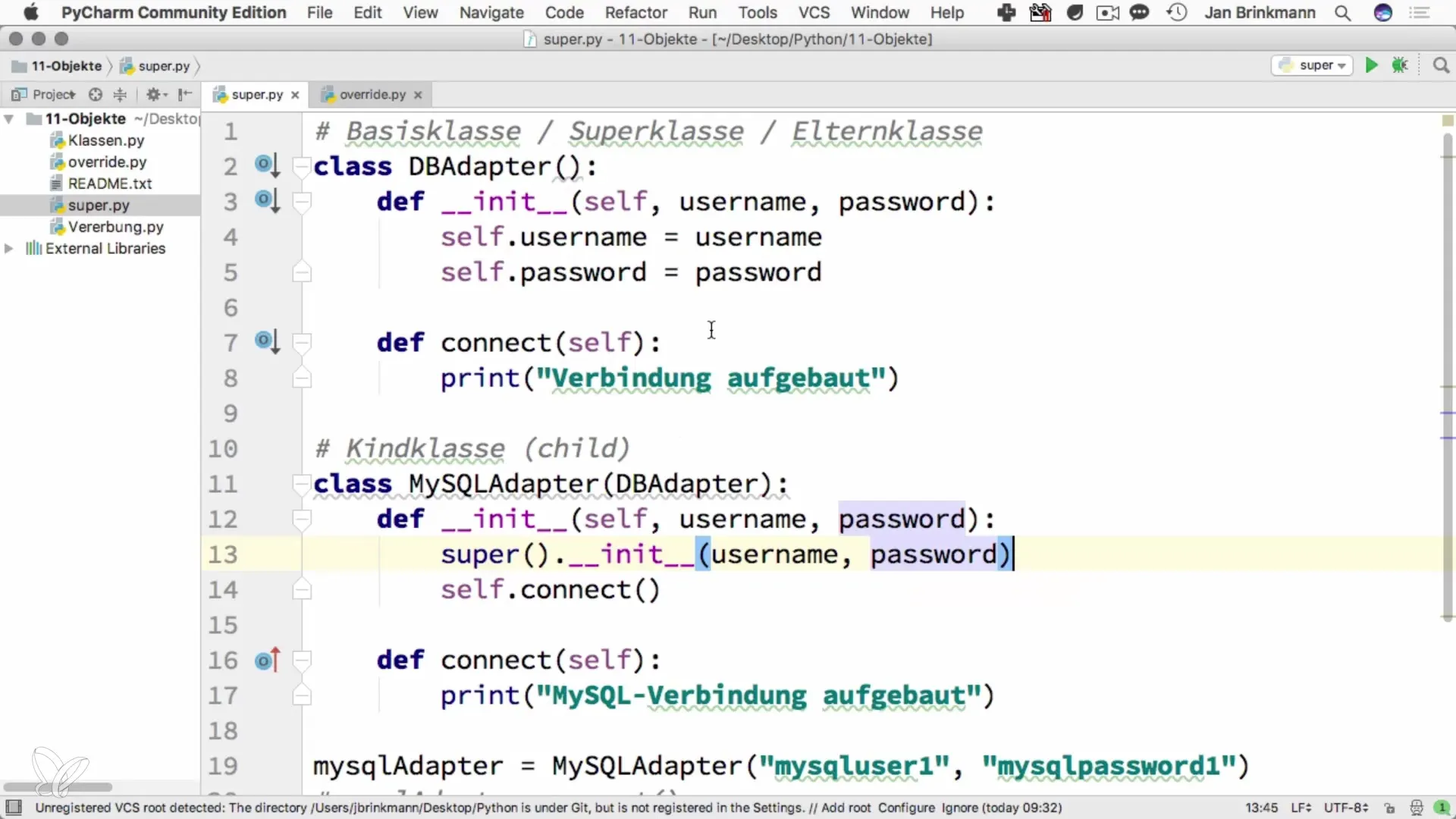
Example of a method
Let's say you want to extend a method like get_privileges in your base class. You can call the base class method with super().get_privileges() while also adding your own logic. This means that the basic permissions defined in the base class are retained while you add additional information specific to your derived class.
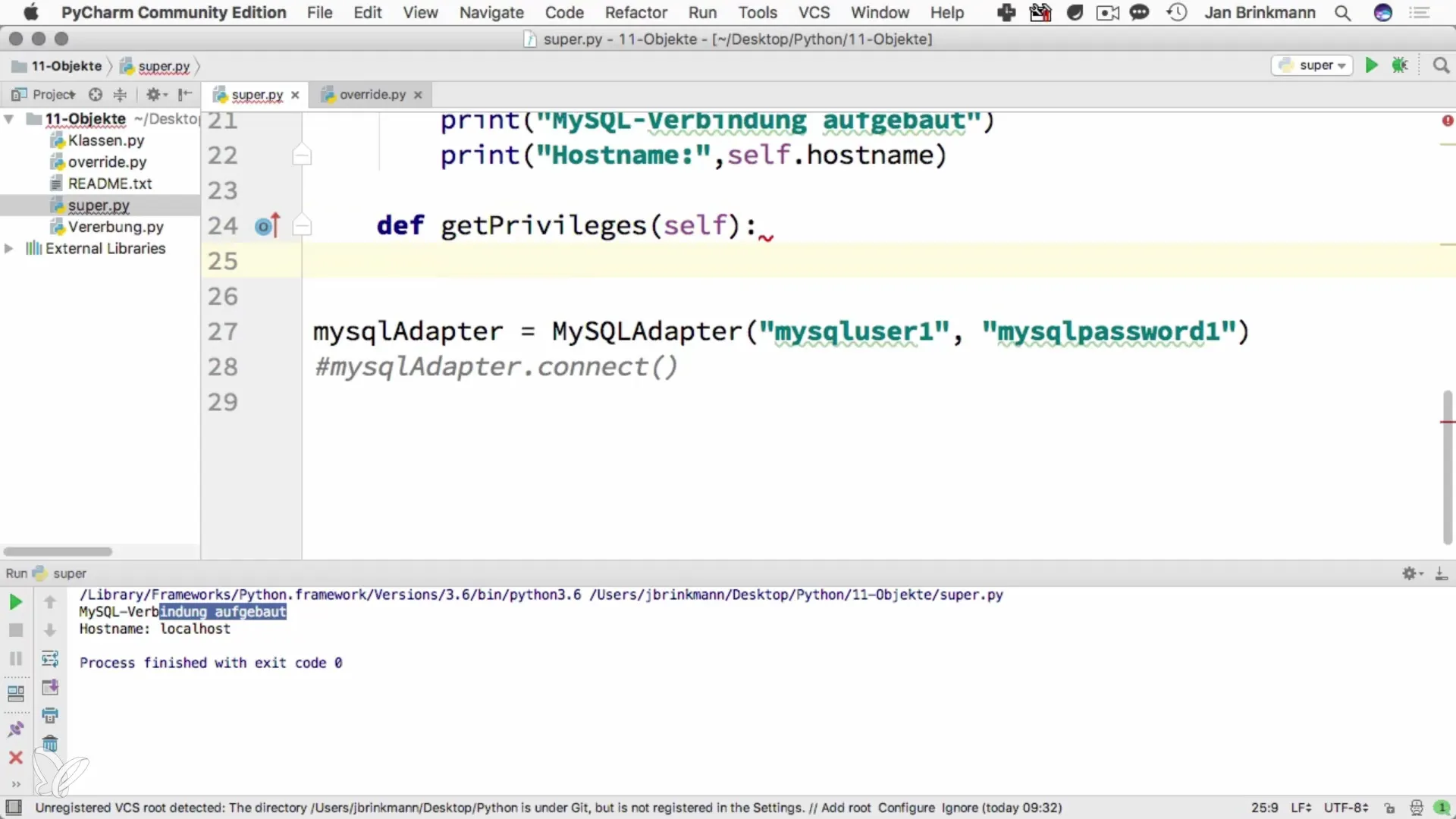
Calling the extended method
When you call the method, you will see that both the logic of the base class and your additional changes are correctly outputted. This demonstrates how flexible and powerful the use of super is for automating recurring tasks while keeping the code clean.
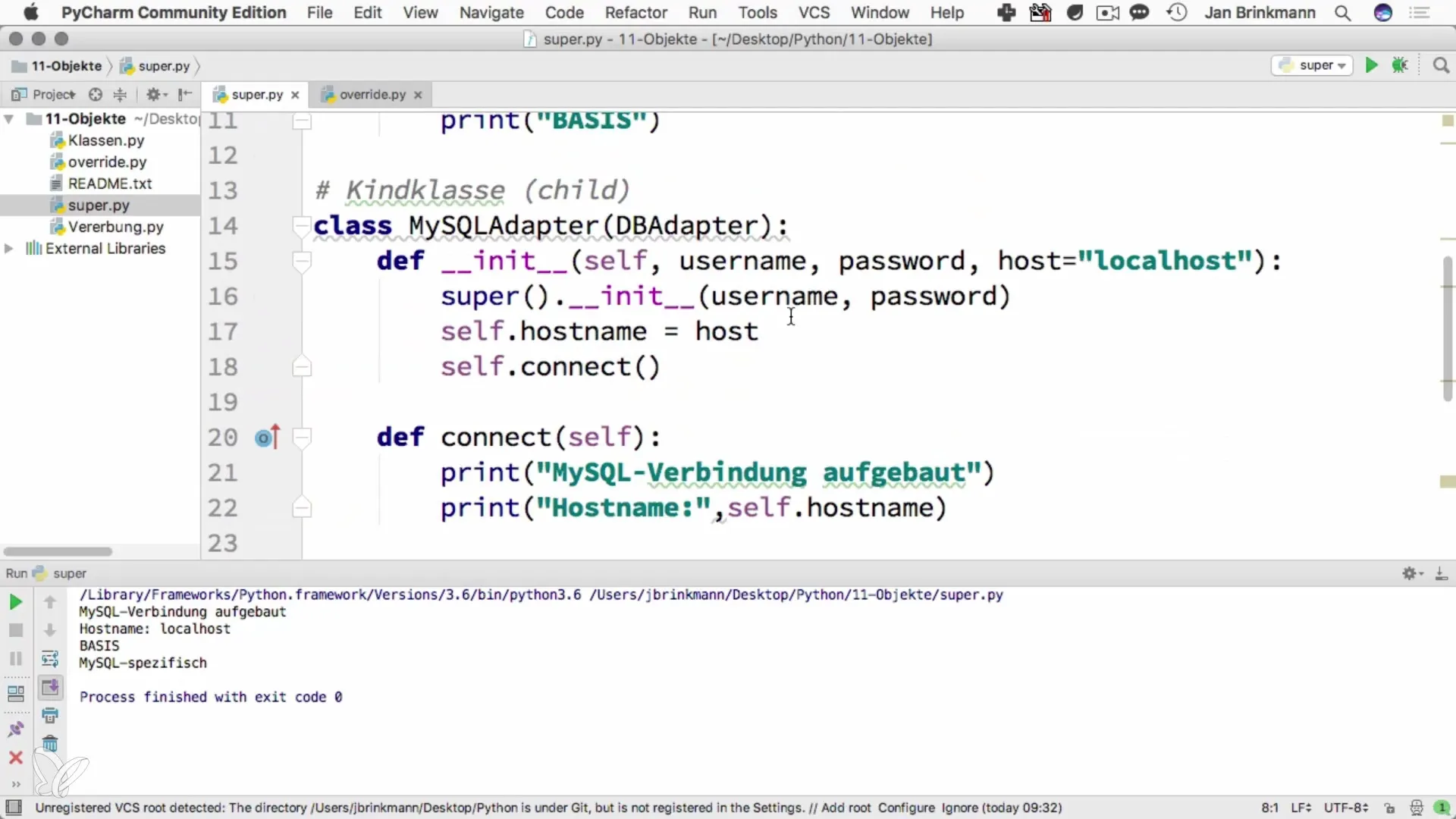
Summary - Effectively using the keyword "super" in Python
The use of super is an important concept in object-oriented programming, especially in Python. It helps you enable access to parent classes without duplicating code. By utilizing super, you can both preserve the functionalities of the base class and implement additional logic in your derived classes.
Frequently Asked Questions
How does the keyword super work in Python?super allows you to access methods and attributes of the base class without redefining them.
When should you use super?super should be used when you are utilizing inheritance and want to ensure that the logic of the base class is available in the derived class.
Can I use super in other methods as well?Yes, super can be used in any methods of the derived class, not just in the initializer.
Are there alternatives to super?Sometimes you can also access the base class directly, but this often leads to code duplication and is less flexible.


